‘Hannibal Directive’ at play as Al-Qassam Brigades lose contact with Edan Alexander
By Alireza Akbari
On Tuesday, after Abu Obeida, spokesperson for the Al-Qassam Brigades, announced that they had lost contact with Edan Alexander, the American-Israeli soldier held captive in Gaza, many couldn't help but suggest that the Hannibal Directive was again at play.
“We announce that we have lost contact with the team guarding soldier Edan Alexander,” Abu Obeida said, following direct Israeli bombardments of the area where Alexander's guards had been stationed.
He slammed the Israeli forces for deliberately targeting their own captive, a tactic he said is part of a broader strategy to ease mounting pressure on the Israeli regime amid the ongoing war on Gaza.
“It seems that the occupation army is deliberately trying to kill him and hence relieve itself from the pressure,” Abu Obeida said, “in order to continue its genocide against our people.”
The statement came as the Israeli regime continues to block the entry of food, medical supplies, fuel, and other life-saving necessities into the besieged Gaza Strip as part of its scorched-earth policy.
Tuesday's warning by the spokesperson of the military wing of Hamas marked his second statement in April regarding the captives held in Gaza, bringing Hannibal Directive back into discourse.
Earlier on April 4, Abu Obeida said, “If the enemy is concerned about the lives of these prisoners, they must immediately negotiate their evacuation or release.”
His remarks followed an ongoing Israeli campaign of mass killings and forced displacement of defenseless Palestinians, a war of genocide that has lasted more than 18 months.
The death toll from Israel’s war on Gaza has now surpassed 51,000, with over 116,045 people injured, according to official data. The unofficial data puts the casualty toll much higher.
Hamas releases video showing Israeli-American captive alivehttps://t.co/bQfDBEWsfS
— Press TV 🔻 (@PressTV) April 13, 2025
Abu Obeida also condemned the Israeli regime for showing no concern for the lives of its own captives.
“Had they (Israeli officials) been concerned about them (captives), they would have adhered to the agreement signed in January. Most of them would probably be in their homes today.”
Just three days before the April 15 announcement about Alexander, Al-Qassam Brigades released a video of the American-Israeli soldier in which he directly addressed the Israeli and American leaders.
“It seems we are not wanted… and we have been deserted here,” Alexander said in the video, intensifying concerns about the Israeli regime’s neglect of its captives’ conditions.
The American-Israeli soldier described his deteriorating condition in captivity caused by the Israeli regime’s disregard for his fate. “I am collapsing—both physically and mentally,” he said.
He also criticized the Israeli regime for blocking a prisoner exchange that could have led to his release.
“Three weeks ago, I heard that Hamas was ready to release me. However, you (Israeli Prime Minister Benjamin Netanyahu) refused and left me herem,” he said, addressing the Israeli premier.
In a desperate appeal to Netanyahu, Alexander shouted in the video, “Tell me why? Why am I here and not at home with my family and friends? Why am I filming my second video today? Why?”
Back in mid-March, the Gaza-based resistance movement Hamas had agreed to release Alexander along with the remains of four other captives killed in Israeli bombings of the territory.
The American-Israeli soldier also expressed a sense of betrayal by Israeli and American officials. “Everyone lied to me,” he said, citing the Israeli regime, the US administration, and the Israeli military.
Hannibal Directive: As Oct. 7 plot unfolds, it’s clear Zionists killed their own
— Press TV 🔻 (@PressTV) November 13, 2023
By @Tracking_Powerhttps://t.co/EPQABpFtidhttps://t.co/EPQABpFtid
“President Trump, I had believed that you would succeed in getting me out of here alive. Why did you fall victim to Netanyahu’s lies? Why? Tell me why?”
Despondent over the breakdown of the ceasefire and exchange process, Alexander issued a warning and said, “You will not see me alive for the last time through this video.”
Alexander, who once served with the notorious Golani Brigade, ended his message with a plea for action from both Tel Aviv and Washington. “Keep demonstrating and keep doing everything you can,” he urged, calling for public pressure to resume the prisoner exchange efforts.
“Our time really is running out. Every day I think the bombing is getting closer to our heads, and this is really difficult… we really think we’ll come home dead,” Alexander said in a recent video message, released after the Israeli regime rejected a prisoner exchange proposal.
This marked Alexander’s second appearance in a video published by Al-Qassam Brigades. In his first footage, broadcast on November 30, he stated, “I do not want my fate to be like that of my American compatriot, Hersh (Goldberg Polin).”
Given Alexander’s latest message and the April warnings issued by Abu Obeida, activists and observers took to social media, raising alarm over the reactivation of the Hannibal Directive.
American journalist and activist Sam Husseini weighed in on X (formerly Twitter), writing, “Looks like Hannibal Directive is still being pursued by Israel—even against US citizens, as I warned last year.”
Journalist and author Max Blumenthal suggested that Israel’s bombing of the area where Alexander was held may have been an attempt to reduce “the main point of political leverage for Hamas.”
“Netanyahu freaked out when Trump’s team initiated direct talks with Hamas for Edan Alexander, who is a dual US-Israeli citizen… Now it appears Israel has targeted the site where Alexander was held, raising new questions about its use of the Hannibal Directive to kill hostages in Gaza,” he wrote.
Meanwhile, some activists pointed to the tragedy of the Bibas family, killed in Israeli airstrikes, as another chilling example of the Hannibal Directive in action after the events of October 7, 2023.
✍️ Feature -Netanyahu killed Bibas family and now exploits tragedy to derail Gaza truce deal
— Press TV 🔻 (@PressTV) February 25, 2025
By @mypenmyworldhttps://t.co/VLWYzP1XM0
On February 20, 2025, the bodies of Shiri Bibas and her two children, Ariel and Kfir, killed in Israeli airstrikes in 2023 in Gaza, were handed over to the International Committee of the Red Cross (ICRC) in Khan Yunis as part of a ceasefire agreement between Hamas and the Israeli regime.
Amid social media discussions about the Bibas family and claims that Israel sought to exploit the tragedy to avoid further negotiations, Abu Obeida announced that the bodies of the Bibas family, along with that of Israeli captive Oded Lifshitz, would be returned on February 20 as part of the swap deal.
He condemned the Israeli military for killing its own captives, stating, “All of them were alive before the Zionist occupation aircraft deliberately bombed the locations where they were held.”
The family held Netanyahu responsible for the deaths of his loved ones. “Netanyahu, you bombed and killed my wife and my two children, who were the most important things in my life,” he said.
The Bibas family also made it clear that no Israeli minister was welcome at the funeral.
Notably, cases like those of the Bibas family and Alexander have been cited by analysts as examples of the Israeli regime’s use of the Hannibal Directive as a means to shift blame onto Hamas and justify the continuation of its war on Gaza.
In early April, the armed wing of the Palestinian Resistance Movement, Hamas, released another video featuring captives held in Gaza.
In the footage, two captives stated that Israeli forces targeted them while they were briefly outside, getting fresh air. Both expressed gratitude toward Hamas fighters for rescuing them.
“We went out for a moment to breathe fresh air and see the sky and the stars. The Israeli army decided to bomb us. It hit the building I was in,” one captive said.
“We escaped death. Just scratches. We survived thanks to God and thanks to the Hamas fighters who risked their lives to get us out and brought us back into the tunnels,” the other captive continued.
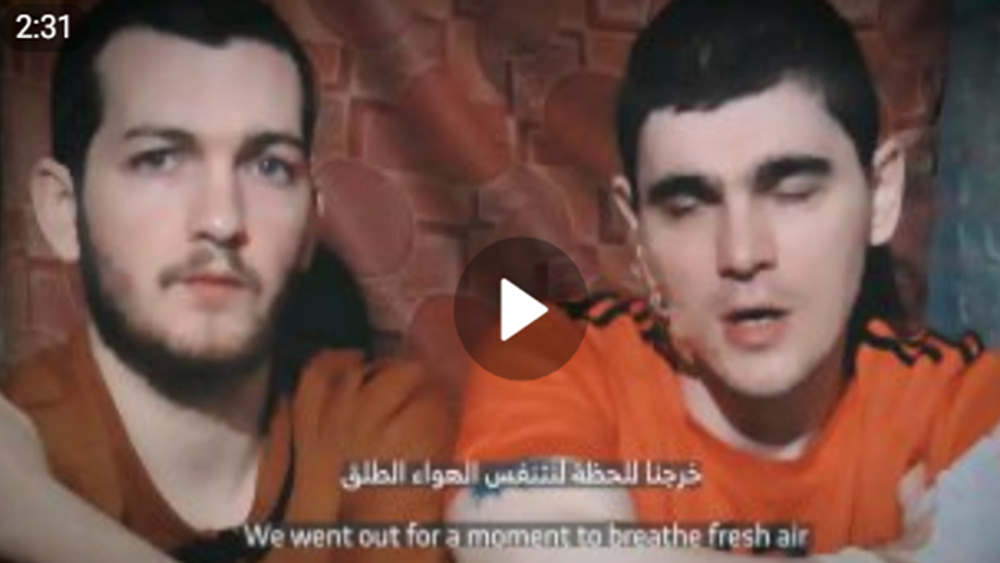
In another video released by Hamas on March 24, two more Israeli military captives criticized Netanyahu for ignoring their plight and refusing to acknowledge them publicly.
“I am prisoner number 21. We, the prisoners in Gaza, want to tell you about our situation. We want you to know that Hamas did not ask us to say this—that this video clip is not intended for psychological warfare,” one of them stated.
“We were dealt a severe blow on March 18,” one captive explained, recalling how Israeli forces launched an air assault on Gaza. “The attack could have killed us,” he added.
“I am prisoner number 22. Until yesterday, I had a name, ID, and hope. Today, I'm just a number. Enough, enough, enough,” he said, slamming the Israeli regime for silencing the voices of its captives.
“The prisoners who were with us before and are now released—give them a chance to speak and express their opinions. Stop silencing their voices.”
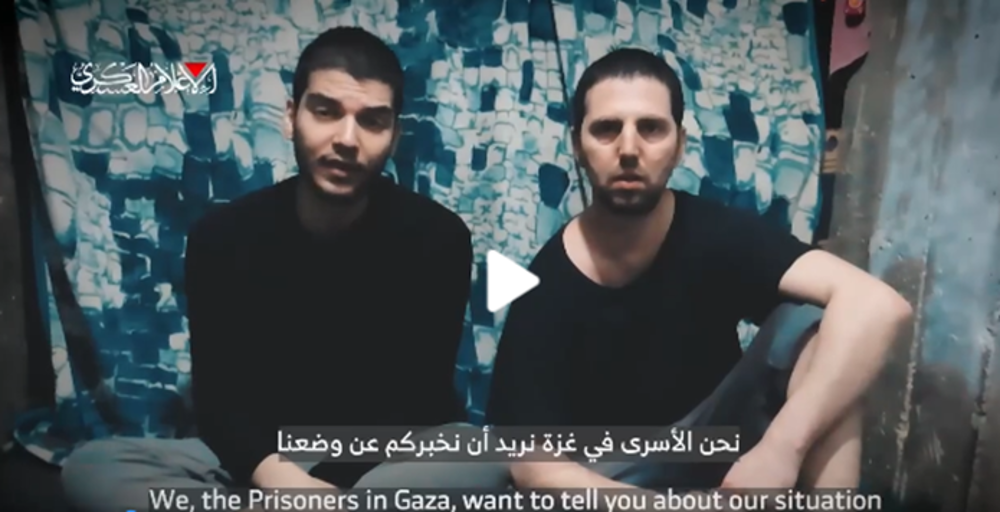
The most recent case came in the form of a video message from Israeli captive Baron Barslavsky, who directly blamed the regime for prolonging the war and pleaded with officials to bring him home.
In his message, Barslavsky described extreme suffering—severe shortages of food, water, and medical care, relentless bombings, and a steady deterioration in both physical and mental health.
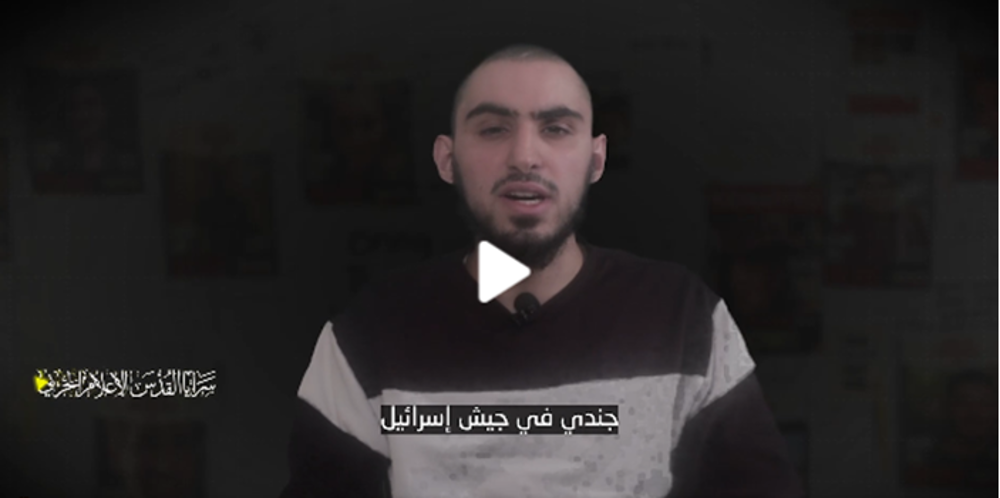
“The next bomb will land on my head, and my blood will be on your hands,” he warned. “Prime Minister Netanyahu, I gave my vote in the last elections to Ben Gvir. Ben Gvir, you let me die here in Gaza—the same Gaza Strip you keep bombing and sealing off, without food and water.”
Even on October 7, 2023, when Hamas launched an unprecedented military operation against the Zionist entity, the Netanyahu regime was quick to order the killings of its own captives under the "Hannibal Directive," as Press TV reported in November 2023.
Dating back to 1986, and originally known as the Hannibal Protocol, it posits as an overriding objective the need to avoid the capture of Zionist forces, if necessary, at the expense of eliminating their own forces and remained a military secret until 2003, according to David Miller, the producer and co-host of Press TV’s weekly Palestine Declassified show.
"It states that a bad result (the killing of a captive soldier) is morally permissible only as a side effect of promoting a good action (stopping his captors),” Miller wrote in an article for the Press TV website weeks after the events of October 7, 2023.
Resistance groups announce volunteer recruitment to defend Iran
Indians rally to condemn Trump's threats against Ayatollah Khamenei
VIDEO | Iran will devastate Israel if it cuts loose
Sunni MPs condemn Trump’s insult, affirm support for Iran’s Leader
1,000 strategic drones officially join combat units of Iranian Army
VIDEO | Germany, not just merely an economic recession
Discover Iran: Hormozgan, home to the last lenj boatbuilders of Persian Gulf
VIDEO | Condition of Gaza hospitals at the beginning of phase two recovery


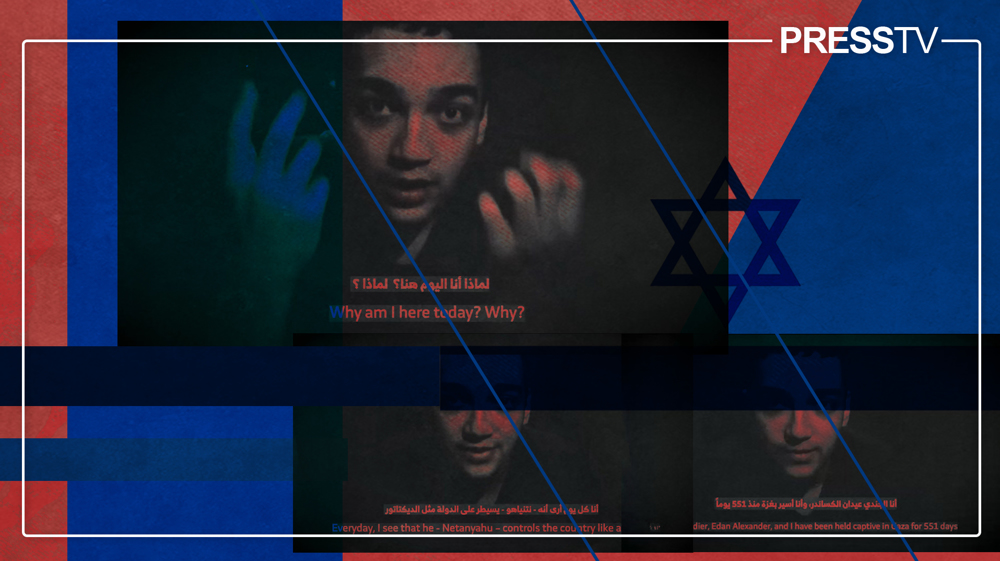
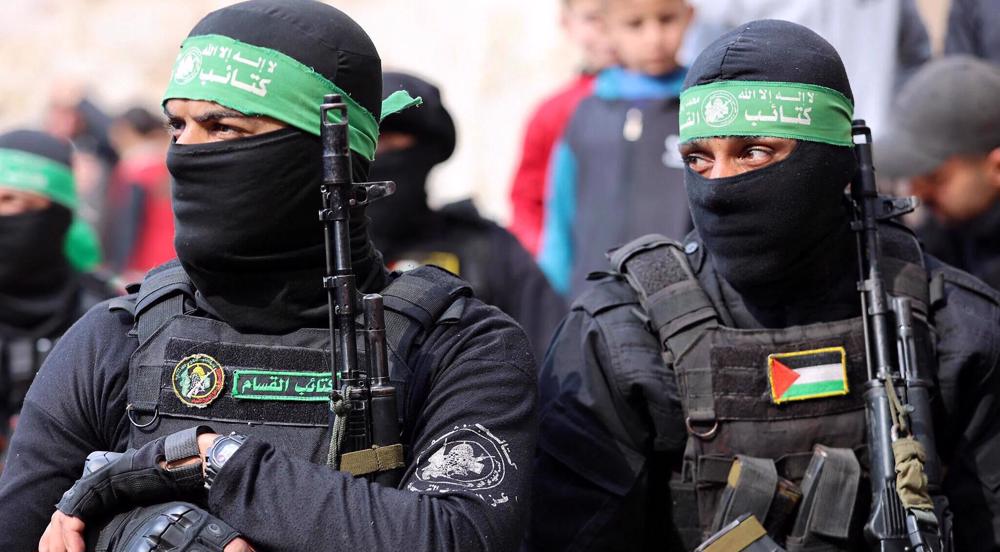
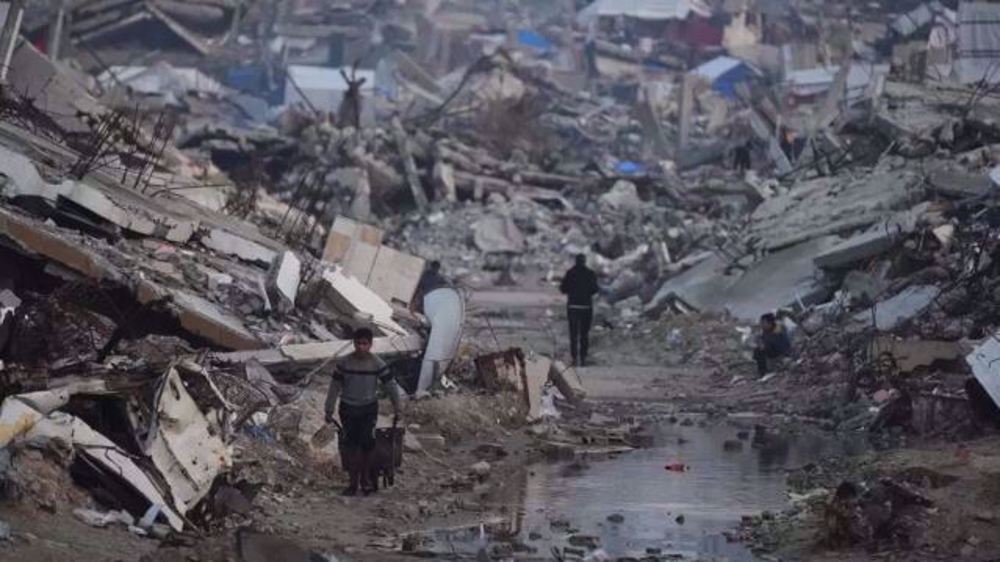
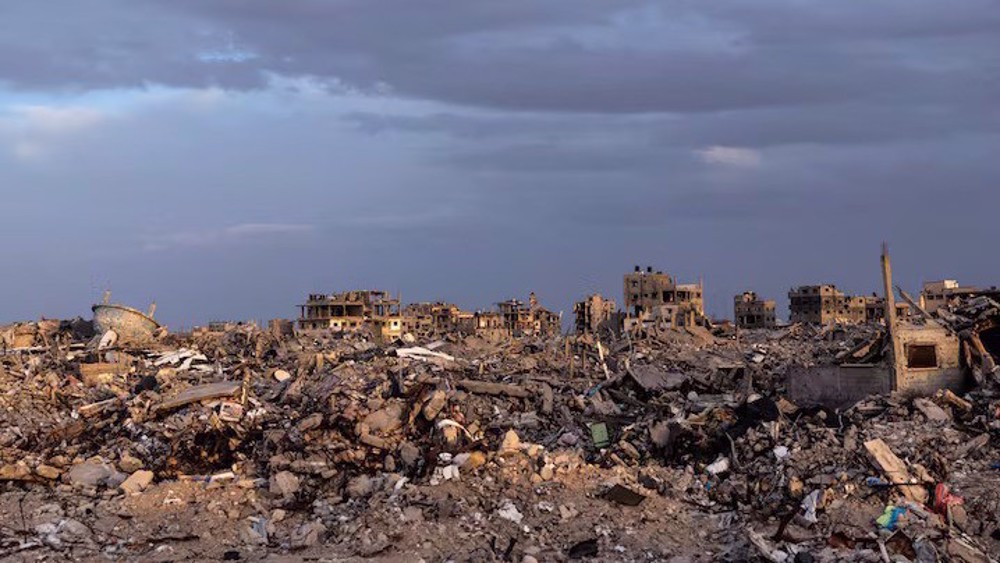



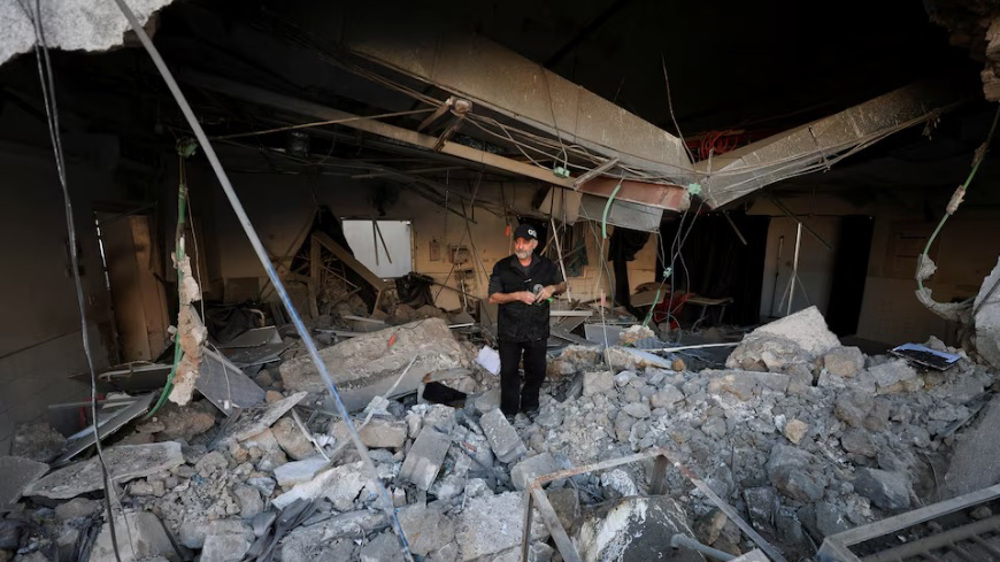
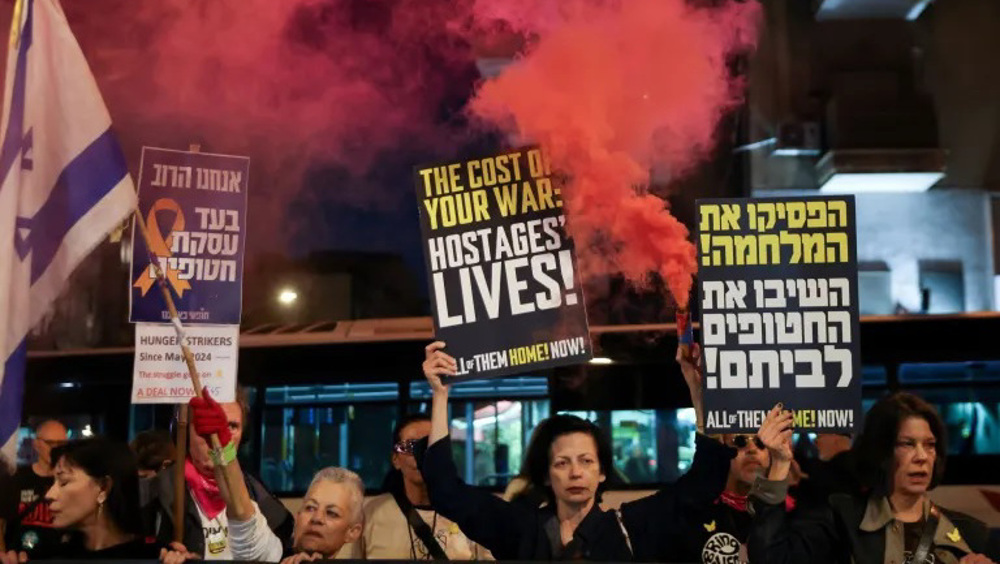


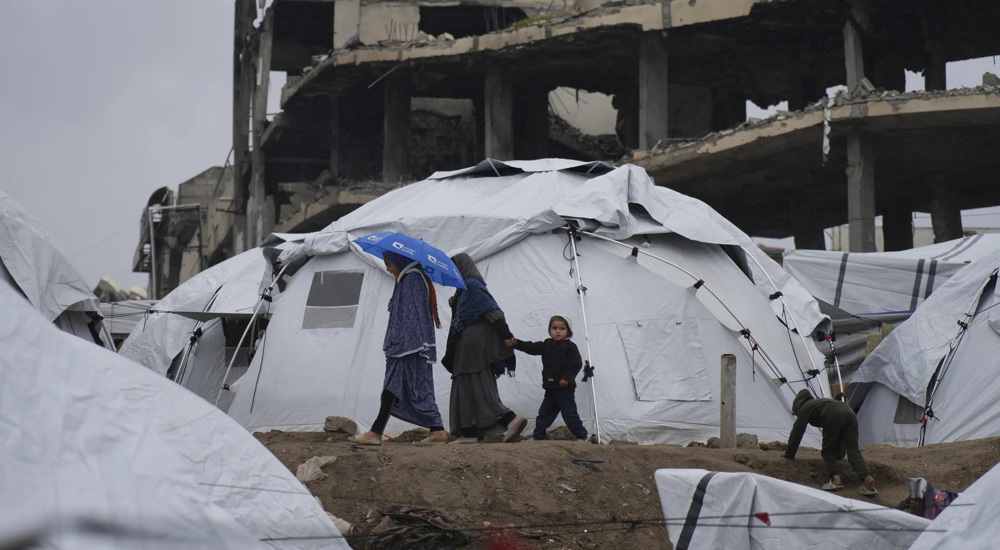
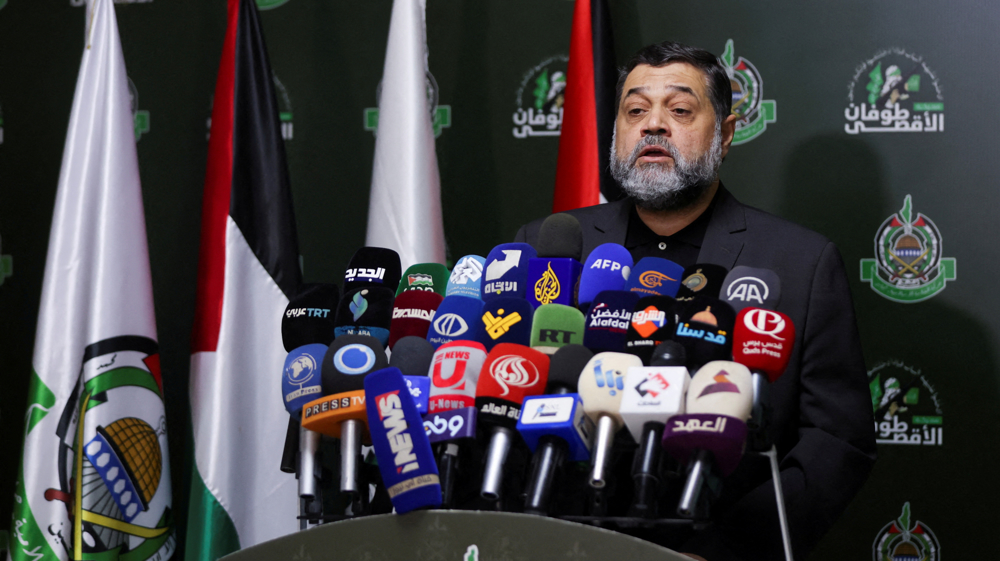
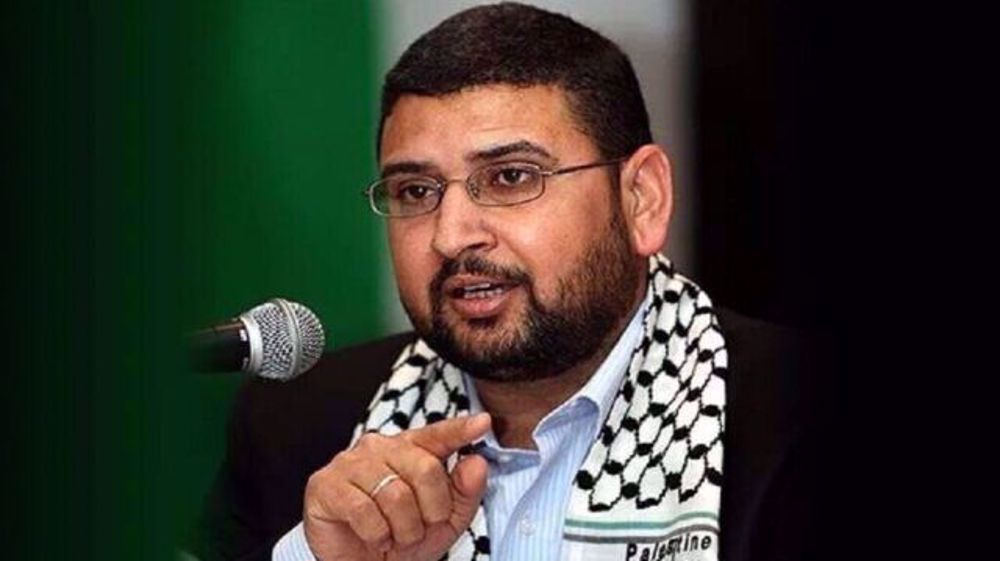

 This makes it easy to access the Press TV website
This makes it easy to access the Press TV website